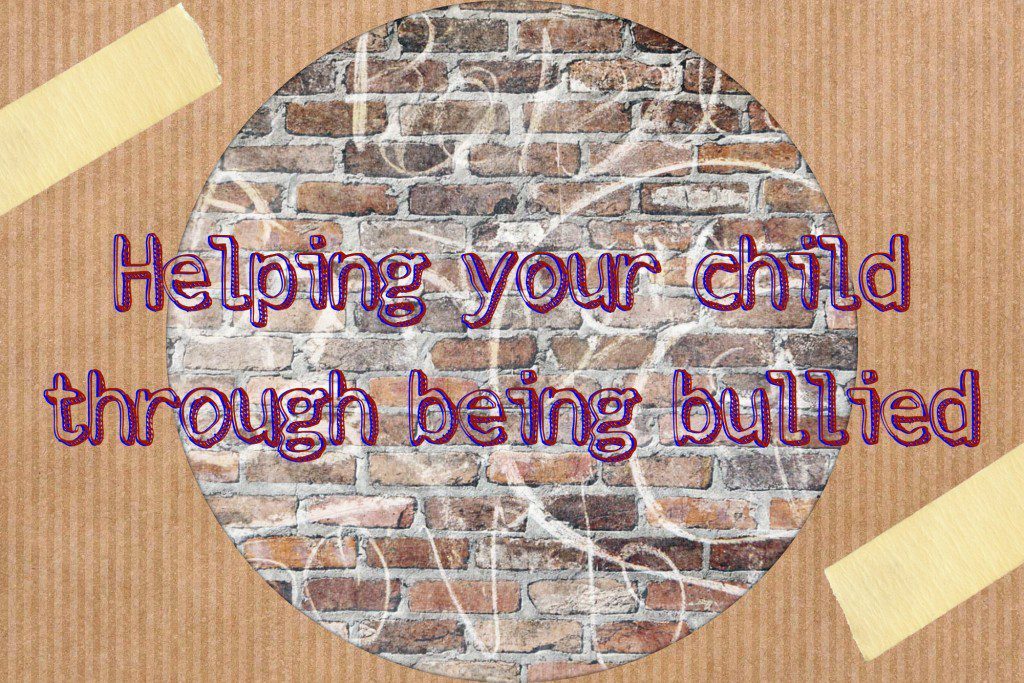In the middle of a circle of 5 girls I sat on the floor, paralyzed to the ground by the weight of my fear, unable to escape what I knew was about to happen.
The empty gym’s silent expanse surrounded and engulfed me. I desperately hoped one of the doors would open and a teacher would be behind it. That didn’t happen.
“Go on, do it” said the girl with the red scraped back hair and the menacing voice.
The girl with the bouncing curls took a step towards me.
“Do it!”
We were all 14 years old. All trying our hardest to find our place. All figuring out how we were going to define ourselves. All struggling.
*Slap*
Even now, 20 years on, I remember the look in her eyes as her hand left its imprint on my face.
In the past, I’d been pushed to the ground, had the back of my chair kicked over and over again, been spat at, and called all the names you could imagine. But I’d never been smacked in the face.
It was a sharp hit. It stung for almost an hour. It hurt to the touch for days. It wounded me for years — far more than the minutes of flushed cheeks would tell you.
To this day I remember every detail, every girl’s name, and every method I used to try to hide the pain.
For years I wondered what was wrong with me. What had I done to deserve it? Why did it go on for so long? I still feel that fear, but now I’m a parent I find myself worrying about my kids. How am I going to react if and when my children experience bullying?
Parents often are confused as to what’s going on and simply don’t know what advice to give to their child. They don’t know if going to a teacher or the principal is going to help or hinder. They don’t know if their child is making a big deal about something small, or if their child should “toughen up” a bit.
Parents may think perhaps teaching the child to ignore the bullies is best, as it doesn’t involve stooping to their level. They may think that their child should just hit back, and that in one instant it will all stop. But let me tell you from experience… neither of those works.
Bullies exist at all ages and in all walks of life. If you’re smart, they’ll pick on that. Struggle to understand concepts? They’ll pick on that. Have brown hair? That’s not cool. Blond hair? They can take issue with that too. Wear glasses? Yep, that’s fair game. Think you’ll solve it by wearing contacts? Nope. They pick on you because you’re skinny? They won’t leave you alone if you gain weight.
Do bullies need to be reigned in, and does their behavior need to stop? Absolutely yes. For the most part, I don’t think any of my bullies had any idea of the impact that they have on my life. Some have even asked to be my friend on Facebook. Kids can be cruel, that’s for sure, but I doubt any of my childhood bullies remember the intricate details of what they did to me.
And while bullies do need to be taught important lessons, this blog post is not for them, or even about them. This is for you. The parent at home left to pick up the pieces. Here is how I would advise you to best help your child the first time they come home from school complaining of bullying:
Listen. Let them talk to you. Don’t jump in with emotion immediately. Listen calmly, and leave plenty of pauses for your child to get everything off their chest.
Believe. You must believe them. Even if you think it might be a little exaggerated or not exactly as it happened, believe that the story they are telling you is what they experienced.
Focus on feelings. Acknowledge the hurt or the sadness. Let your child know it’s okay to feel whatever it is that they are feeling. Let them know that you’re there to help them, not to judge them. Don’t tell them to “suck it up”, “ignore it”, or “fight back”.
Reassure them. Let them know that it’s not their fault. Tell them that some people go through a phase where they have to make other people feel bad, just to make themselves feel good. Tell them that everybody changes, and that the bully doesn’t realize how mean they were being. Tell them you love them, and that you’ll always be there for them.
Talk about how you and your child can handle the bullying. This one is tough, but you have to know that you’re their team-mate. The first time your child comes to you with this issue, you’re going to want to be reactionary, but try to hold yourself back. They may want advice, or they may just want you to listen. They may want you to get involved, and you should be prepared to get in touch with the school. They may not know what they want, they may not even know how to really talk to you about it. You can help them think this through by asking how some of these scenarios would make them feel, and even by role playing some scenarios.
Whatever happens, don’t tell them what to do. They already feel somewhat powerless to the bully, they want to feel like they have some control at home.
Remember, they might be emotional, and that may manifest itself as sadness or even anger. Sometimes that sadness and anger might be aimed at you, because they don’t know how to deal with some really scary feelings. Let your child know that they are safe with you. And please understand that your child loves you and knows you love them – that’s why they are sharing this with you.
It’s going to be tough. It doesn’t matter when it happens, or how it happens, it is going to break your heart to see your child upset like that. You’ll do a great job of helping them just by acknowledging and believing their experience.
You can find lots of really great advice at stopbullying.gov – remember if the bullying continues or becomes physical, or you’re worried about the mental health of your child, be sure to seek professional help.
















